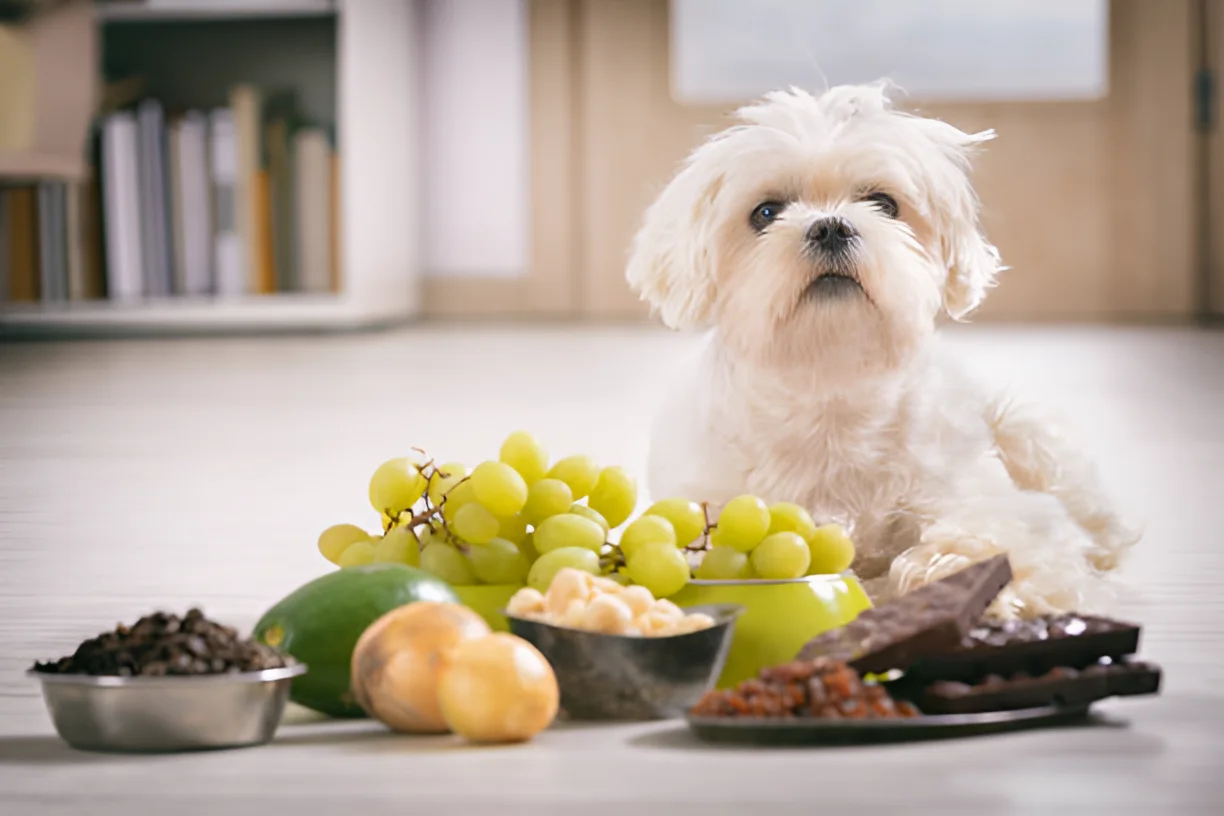While the smell of onions is unlikely to harm dogs directly, it can serve as a warning sign of potential dangers associated with onion toxicity if ingested. Understanding the risks and taking preventive measures can help protect your dog from the harmful effects of onions.
Onions are a common ingredient in many kitchens, adding flavor and aroma to a variety of dishes. However, while onions are safe for humans, they can be harmful to dogs. This comprehensive guide will explore whether the smell of onions is toxic to dogs, the potential risks of onion exposure, and how to keep your furry friend safe. Whether you’re a seasoned pet owner or new to caring for a dog, this article will provide valuable insights and practical advice.
Understanding Onion Toxicity
Onions contain compounds called disulfides and thiosulfates, which are toxic to dogs. These compounds can cause oxidative damage to red blood cells, leading to a condition known as hemolytic anemia. This condition can be severe and even life-threatening if not treated promptly.
Key Compounds in Onions:
- N-propyl disulfide: This compound is particularly harmful as it can cause oxidative damage to red blood cells.
- Thiosulfates: These compounds can also contribute to the breakdown of red blood cells.
Can the Smell of Onions Harm Dogs?
The smell of onions alone is unlikely to harm dogs directly. However, the strong aroma can be enticing to dogs, leading them to investigate and potentially ingest onions or onion-containing foods. While the smell itself is not toxic, it can serve as a warning sign for pet owners to be cautious.
Potential Risks of Onion Smell:
- Curiosity and Ingestion: Dogs are naturally curious and may be tempted to taste or eat onions if they are drawn to the smell.
- Respiratory Irritation: In some cases, the strong smell of onions can cause mild respiratory irritation in dogs, leading to coughing or sneezing.
Symptoms of Onion Toxicity in Dogs
If a dog ingests onions, they may exhibit symptoms of onion toxicity. It’s important to recognize these symptoms and seek veterinary care immediately.
Common Symptoms:
- Vomiting: Frequent vomiting can indicate ingestion of harmful substances.
- Diarrhea: Watery or bloody diarrhea is a common symptom of toxicity.
- Lethargy: Unusual tiredness or lack of energy can be a sign of illness.
- Loss of Appetite: Refusal to eat can indicate gastrointestinal distress.
- Pale Gums: Pale or yellowish gums can be a sign of anemia.
- Dark Urine: Dark-colored urine can indicate the breakdown of red blood cells.
Immediate Steps to Take if Your Dog Ingests Onions
If you suspect your dog has ingested onions, take the following steps:
1. Remove Access to Onions:
- Prevent your dog from consuming any more onions or onion-containing foods.
2. Offer Fresh Water:
- Encourage your dog to drink fresh, clean water to help flush out any toxins.
3. Monitor for Symptoms:
- Keep a close eye on your dog for any signs of illness. Note any changes in behavior or physical condition.
4. Contact Your Veterinarian:
- If your dog shows any symptoms of onion toxicity, contact your veterinarian immediately for advice and possible treatment.
Veterinary Care and Treatment
Your veterinarian may recommend several diagnostic tests and treatments depending on your dog’s symptoms:
Diagnostic Tests:
- Blood Tests: To check for anemia and other signs of toxicity.
- Urinalysis: To detect kidney function and possible infections.
- Imaging: X-rays or ultrasounds to check for internal issues.
Treatment Options:
- Intravenous Fluids: To treat dehydration and flush out toxins.
- Blood Transfusions: In severe cases of anemia, a blood transfusion may be necessary.
- Activated Charcoal: To absorb toxins in cases of recent ingestion.
Preventive Measures
To prevent your dog from being exposed to onions, consider the following tips:
1. Keep Onions Out of Reach:
- Store onions and onion-containing foods in secure locations where your dog cannot access them.
2. Dispose of Onion Scraps Properly:
- Ensure that onion scraps and leftovers are disposed of in a way that your dog cannot access them.
3. Educate Yourself and Others:
- Make sure everyone in your household is aware of the dangers of onions to dogs and takes precautions to keep them safe.
4. Use Dog-Safe Alternatives:
- When cooking for your dog, use safe alternatives to onions such as parsley, basil, or turmeric.
Conclusion
While the smell of onions is unlikely to harm dogs directly, it can serve as a warning sign of potential dangers associated with onion toxicity if ingested. Understanding the risks and taking preventive measures can help protect your dog from the harmful effects of onions. By following the guidelines and tips provided in this article, you can ensure your dog remains healthy and safe from the dangers of onion exposure.
The photo featured below the post headline is Credit: humonia/istockphoto
I hope you find this post helpful and informative. If Yes’ feel free to share it with your friends!
Frequently Asked Questions
Are onions toxic for dogs to smell?
While the smell of onions is unlikely to harm dogs directly, it can serve as a warning sign of potential dangers associated with onion toxicity if ingested.
What should I do if my dog eats onions?
Remove access to onions, offer fresh water, monitor for symptoms, and contact your veterinarian immediately.
What are the symptoms of onion toxicity in dogs?
Symptoms include vomiting, diarrhea, lethargy, loss of appetite, pale gums, and dark urine.
How can I prevent my dog from being exposed to onions?
Keep onions out of reach, dispose of onion scraps properly, educate yourself and others, and use dog-safe alternatives when cooking.
Can the smell of cooked onions be harmful to dogs?
While cooking onions can reduce their pungency, the smell can still be enticing to dogs and may pose a risk of accidental ingestion.

